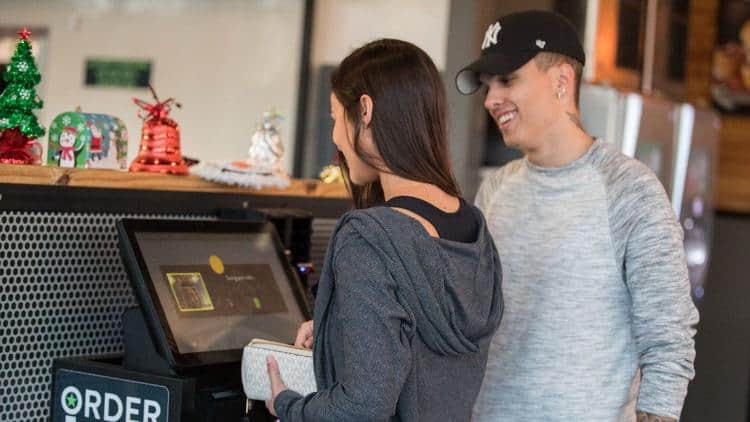
South Florida-based BurgerFi is betting you like to be recognized.
“Who doesn’t love the convenience of walking into their favorite restaurant, where they’re recognized immediately and asked if they want the usual?” said Mariah Kulkin, a company marketing representative.
Turns out there’s an app for that.
Pioneered for law enforcement and border security uses, facial recognition applications are beginning to enter shopping and dining spaces, helping companies use your purchasing histories to customize your customer service experiences.
The South Florida-based BurgerFi chain has installed touchscreen ordering kiosks with facial recognition capabilities at 22 of 108 locations, including in Boca Raton, Doral, Jupiter, Port St. Lucie and West Palm Beach. It started rolling out the technology about two and a half years ago.
The company says facial recognition can help speed up orders when customers who previously allowed their photos to be taken at an ordering kiosk make a return visit.
“You have to opt in,” said Lou Palermo, the company’s vice president of financial planning and operational support. “If you are a first-time user, it asks you to ‘please order.’ Afterward, it prompts, ‘Do you want to save for future use?’ Then it gives you the option to save by your phone number, your credit card information or facial recognition.”
The next time the customer visits, the kiosk will offer to pull up a previous order with facial recognition, and if the customers opts to use a stored credit card, ordering and paying can completed in as little as 10 seconds, Palermo said.
Actual photos are not stored in the company’s system, he said. “Instead we store their facial geometry for the purpose of looking up previous orders.”
Also called biometrics, facial geometry measures the unique characteristics of individuals — shapes of noses, distances between eyes, widths of mouths, lengths of ears — and stores those measurements as data that can later be matched, just like fingerprints.
Xenial, a Troy, Mich.-based payment processing company, has introduced the system at other U.S. chains, including fast casual chain Malibu Poke, based in Dallas; UFood Grill in Owings Mills, Md.; and Wow Bao, an Asian-themed eatery based in Chicago.
CaliBurger, based in Pasadena, Calif., introduced a facial recognition ordering and payment kiosk developed by NEC Retail Solutions.
Palermo said about 80 percent of kiosk customers who opt in to the facial recognition process also allow the company to store their credit card information to expedite ordering on their next visits.
“We’ve done some informal surveys. They really get a kick out of technology. It’s non-invasive,” he said.
And as long as participation remains optional in restaurants, the technology doesn’t stand to generate the same kind of civil liberties concerns that followed its rollout in public spaces in China and Russia.
So far, use of facial recognition technology in the U.S. have been focused on security while Asian retailers have been quicker to adopt it for retail payments and customer integration, the website biometricupdate.com reported in November.
But retailers are expected to begin using it to stop criminals and shoplifters. Encino, Calif.-based FaceFirst says clients for its security products include big box stores, department stores, grocery stores and pharmacies.
The firm says its software can scan faces of people in retail stores in real time and instantly compare them with archived photos of known shoplifters, violent criminals, sex offenders, missing children or “persons of interest.”
Still, FaceFirst CEO Peter Trepp told the website Biometric Update last month that those functions can co-exist with the technology’s more consumer-friendly uses, such as “consumer loyalty and consumer experience … where privacy is not the cornerstone issue and consumers are opting into systems that allow [companies] to engage with them.”


